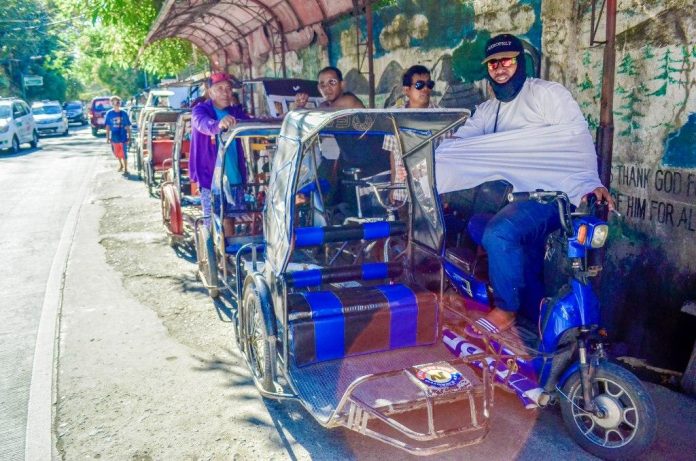
ILOILO City – Councilor Plaridel Nava has decided not to push through with a proposed ordinance empowering the city government to regulate electric bicycles and their modified version, the electric tricycles.
The proposed ordinance would be in conflict with Department of Transportation (DOTr) Administrative Order 2006-01 issued on March 31, 2006 that e-bikes should not be used as public transport utility and should not be mounted with sidecars, Nava explained.
Under Administrative Order 2006-01, electric motorcycles and electric scooters must be registered as light electric vehicles (LEVs) with the Land Transportation Office (LTO).
LEVs are classified as private motorcycles without sidecars and should not be used for commercial purposes or be hired to transport goods and passengers. Any attachment similar to a sidecar such as that of a tricycle is not permitted.
“The city government cannot issue franchises to e-bikes and modified e-trikes like it does to pedicabs and tricycles. E-bikes and modified e-trikes do not meet the minimum requirement for registration, said Nava, referring to official receipt and certificate of registration (OR-CR).
Without the OR-CR from LTO, Nava said, the city government could not issue a franchise to an e-bike or modified e-trike.
But even if these are registered with LTO, Nava said, e-bikes with sidecars (modified e-trikes) are still illegal as stipulated in the DOTr administrative order.
“Under the administrative circular, an e-bike should not be mounted with a sidecar. Kon ipa-register, as a private motorcycle lang gid,” Nava explained.
Furthermore, according to the councilor, the operation of LEVs is limited to provincial roads, municipal roads, city roads, and barangay roads.
The only way to legalize the operation of e-bikes with sidecars as public transport like pedicabs and tricycles is to amend the DOTC administrative order, said Nava.
The councilor had a meeting with owners/operators of e-bikes-turned-e-trikes on March 1 to supposedly discuss his proposed ordinance regulating them.
“I could feel their frustration but wala ako sang mahimo. We like to help them but ma-clash ang proposed ordinance sa national law. Bisan gaan pa sila ordinance, dakpon man gihapon sila sang LTO,” said Nava.
He advised e-bike owners to make a manifesto addressed to the national government, specifically to the DOTr, seeking a revision to Administrative Order 2006-01 – not classifying e-bikes as motorcycle.
“Tani kon classified as trisikad pwede gid kami ka intra sa local government; pwede kami kahatag sa ila franchise and rota,” said Nava.
While some local government units may have ordinances regulating e-bikes, Nava warned of legal repercussions as these are contrary to a national order.
“Indi kita gusto nga paasahon ang e-trike (owners), gaan sila ordinansa pero at the end of the day dakpon man gihapon sila sang LTO. Daw ginpasaka ta lang sila sa lubi kag tapson,” he explained.
Nava noted that LTO Region 6 already impounded several e-trikes.
Many more, however, continue operating and banking on the assurance of Mayor Jose Espinosa III that they won’t be apprehended by the Public Safety and Transportation Management Office (PSTMO).
“Ina ‘ya asta lang sa PSTMO ang direktiba ni Mayor. Ang LTO indi man under sa mayor’s office so ang LTO can enforce sang administrative circular,” said Nava./PN



